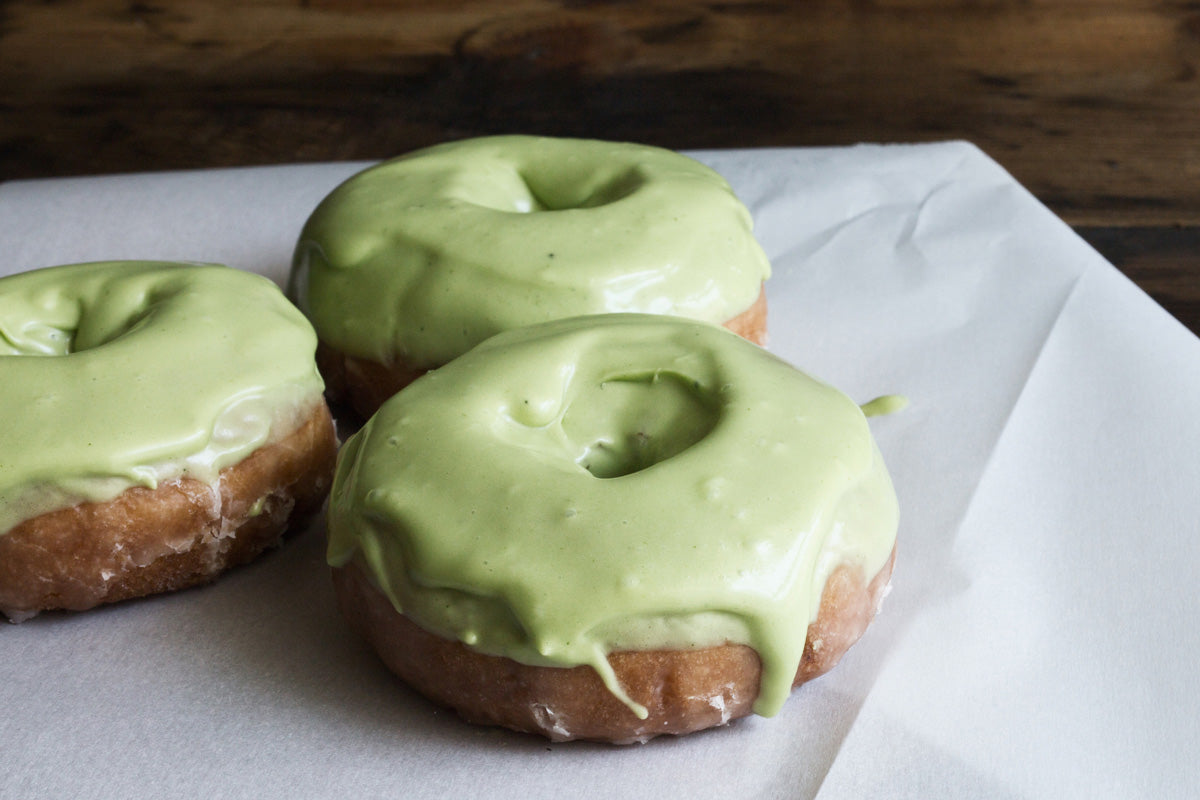
Cooking or baking with Japanese culinary grade matcha takes this powerful green tea powder beyond its traditional role. Besides getting the boost and benefits of matcha, you are also adding a unique earthy flavor and an eye-catching color to your creation. Whether it is a savory or sweet dish or an alcoholic or non-alcoholic drink, the first thing you need to know is what type of Japanese Matcha to use for your creations!

The different grades of matcha stem from the location of the leaves on the plant and the time at which they are harvested. These variables impact the tea’s flavor, color, and texture but not matcha’s nutritional benefits or quality. At Ikeda Tea World, we offer three grades: ceremonial grade, industrial grade, and culinary grade matcha. There is a big debate about what grade to use in the kitchen. Some “cooking-with-matcha” experts argue that it’s better to cook only with ceremonial grade matcha for its unique flavor but others don’t agree. They believe ceremonial grade matcha is such an exquisite blend that it loses its value when mixed with anything else but water.
Culinary grade matcha is produced to be mixed with other ingredients and has a flavor that pairs well with almost anything. So far, there are no rules on which matcha to use for cooking, it depends entirely on the taste you are looking for.

Culinary matcha is also called cooking grade matcha or food grade matcha. In culinary grade matcha, there are five main subtypes: premium, ingredient, kitchen, classic, and café grade matcha. The basic differences in these matchas have to do with the texture, color, blend, and the ingredients each tea mixes well with. For example, ingredient grade matcha plays well with dairy products and milk. This is a good option to use for ice creams or lattes. Whereas café grade matcha is great for baking where its strong flavor helps to offset the sweetness. Café grade matcha also has a unique green color that will create all sorts of eye-catching treats.

Culinary grade matcha can be used for a wide variety of dishes, desserts, or even as a spice. You can find culinary matcha recipes for matcha smoothie bowls, matcha gnocchi, matcha green curry, traditional Japanese matcha sushi rolls, or even for instructions on how to use the recently launched Japanese matcha wine.

Author and matcha enthusiast, Jessica Flint, provides four absolute musts for cooking with matcha in her book, Matcha: A Lifestyle Guide. Cooking with culinary grade matcha is easier than it seems, but always consider the following for better results:
Outside of those tips, let your creativity be free! There is always a new culinary matcha recipe waiting for you!
Are you a business looking for culinary grade bulk matcha for your products? To learn more about Ikeda Tea World and our high-quality bulk teas, contact us today!